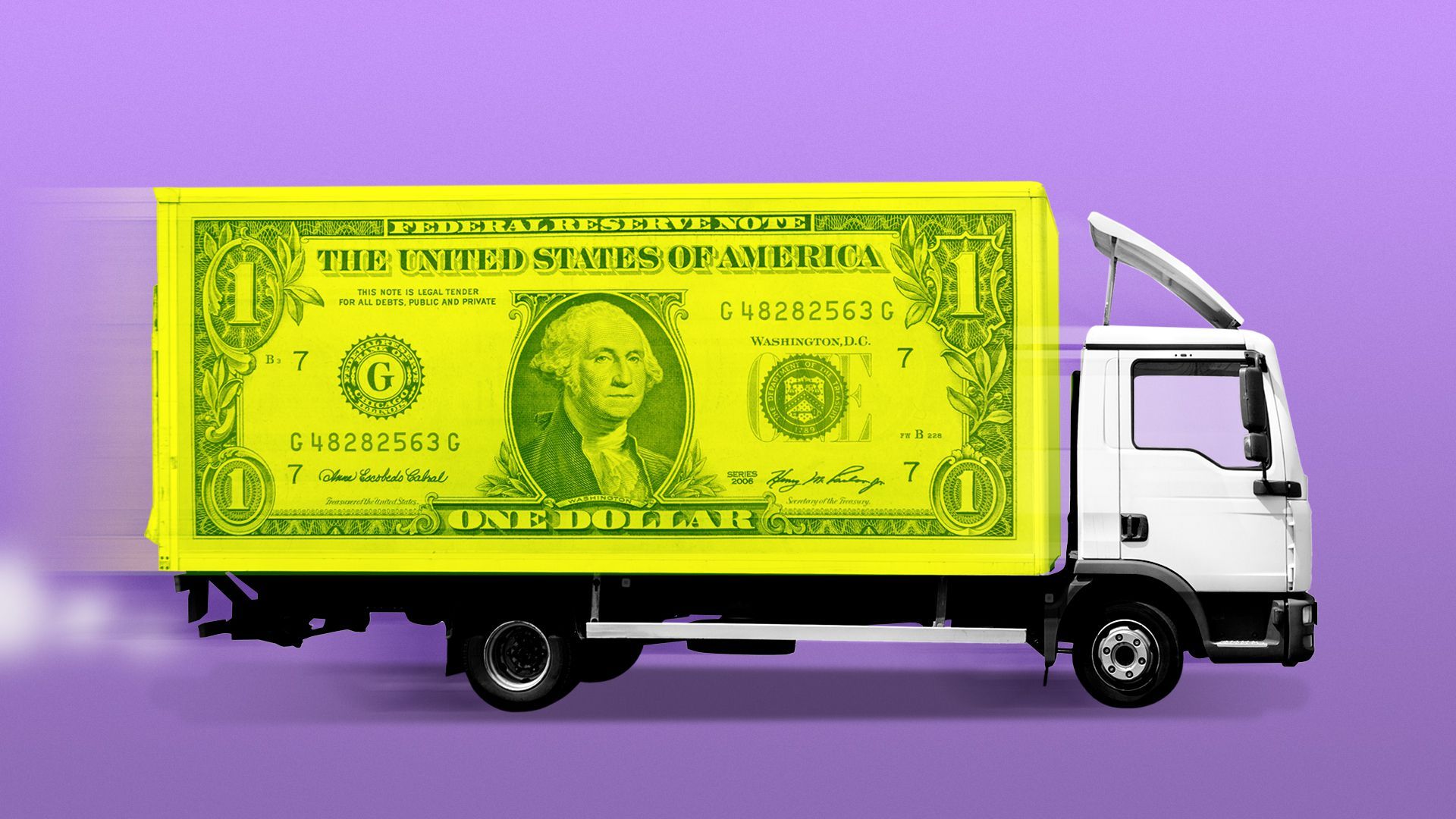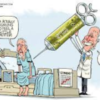What trucking tells us about the economy
![]()
What trucking tells us about the economy

Axios on facebook
Axios on twitter
Axios on linkedin
Axios on email

Sky-high freight rates are falling, pinching truckers’ income. And that tells an important story about what’s going on in the economy overall.
Why it matters: Nearly every good consumed in the U.S. is put on a truck at some point. Right now, there are hints of a slowdown in demand.
- Meanwhile, supply has been stabilizing as a flood of new truckers entered the industry to cash in on the ultra-lucrative boom that sent paychecks soaring.
Between the lines: Much like the debate around the broader economy, freight-watchers largely fall into two camps.
- Some say the industry is simply coming into balance after two years of unsustainable activity.
- Others say the sector is rolling over, and a “freight recession” — with harsh consequences for some truckers — is imminent.
What’s going on: One signal lies in the “spot market,” a live indicator of what it costs to book ad hoc capacity on a truck. (Larger firms tend to use contract rates — they take cues from the spot rates, but with a lag — where prices are negotiated farther in advance.)
- Excluding fuel, spot rates have plummeted by a sharp 30%, but remain above pre-pandemic levels, according to Freight Waves. “To see prices deteriorate by one-third in three months is pretty dire,” says the site’s CEO Craig Fuller.
- Prices go up when the market is tight, with high demand for goods and limited trucking capacity to move them. But prices fall when the opposite happens: Demand slows with more trucking supply.
Analysts say steeper rate drops will be explained by a further slowdown on the demand side as consumers back off on spending on goods, hints of which we’ve seen in retail sales and factory surveys.
- The drop-off in freight rates may be a good sign for inflation (though fuel prices remain high). The slump could cause a shakeout in smaller truck operators facing a collapse in revenue.
- “High fuel costs have been running in their face, prices have been falling, and they have a high cost of operation. That’s not a good combination for staying in business,” says Jason Seidl, a freight analyst at Cowen.
What they’re saying: “We had a freight recession in 2019 and 2015. Did that mean that people were losing jobs at an alarming rate, companies were going bankrupt left and right? Not necessarily,” says Stifel analyst Bruce Chan.
The bottom line: In earnings




















